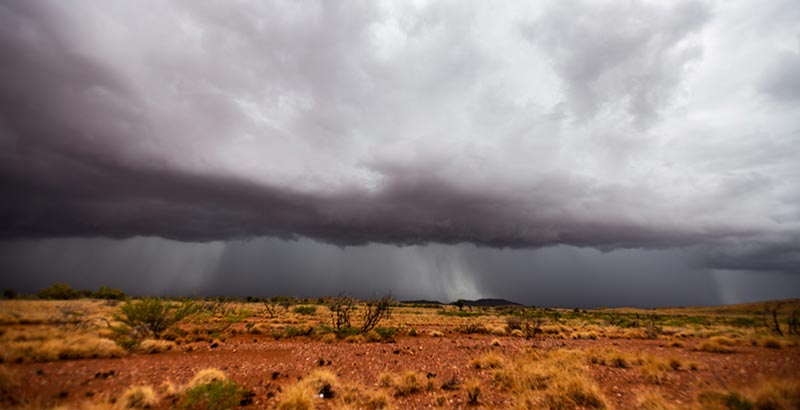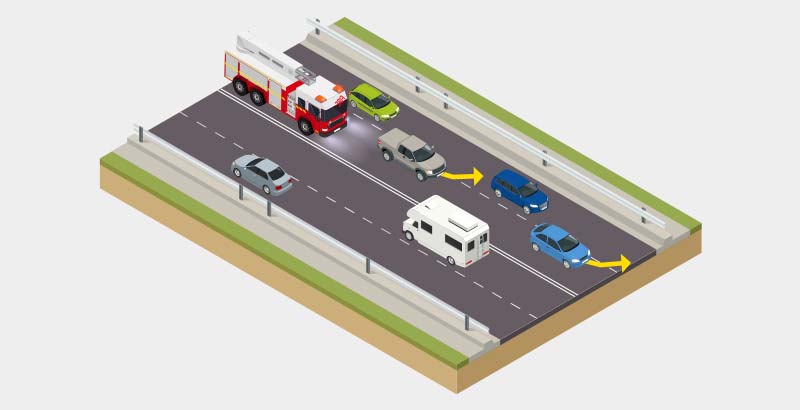Fire or life threatening emergencies: 000
Emergency Information: 13 3337
SES Emergency Assistance: 132 500
Cyclones can impact the north west coast from November to April. Other areas like the Midwest-Gascoyne and Goldfields-Midlands often experience flooding as a cyclone moves south.
Cyclones can be severe and cross the WA coast every year with destructive winds, torrential rainfall, flooding, dangerous storm surge and heavy swells.
As of 15 July 2024, WA’s cyclone warnings have changed.
There are now three warning levels which move up and down to reflect the risk to your life or property before, during and after a cyclone. These are the same warning levels as bushfire, flood and storm. Learning these three levels and how to respond to them could save your life.
Create an emergency plan on Emergency WA to get prepared, stay informed and keep safe during the cyclone season.
Tropical cyclones are low-pressure systems that form over warm tropical waters.
A tropical low becomes a cyclone when there are wind gusts of more than 90km/h around its centre. When the wind gusts reach 165km/h, it’s categorised as a severe tropical cyclone.
Once formed, cyclones can continue for many days, even weeks, and may follow quite erratic paths.

Cyclones are frightening! They can cause death, injury, major structural damage and disruption to essential supplies like electricity, water and gas.
Destructive winds, torrential rain and storm surge can cause flooding and extensive damage to buildings and outdoor structures (especially those poorly maintained or located in exposed locations).
The most intense or destructive weather occurs at the centre, or eye of cyclones. In these conditions, small objects become deadly missiles and can make being outside dangerous.
During cyclones, being outside can be deadly. This includes driving a vehicle or being in a boat.
Cyclones can intensify rapidly. Stay safe by having an emergency plan, a safe place to shelter, supplies and know how to stay informed.
Create your emergency plan on Emergency WA now.
Did you know? WA is noted for the fastest wind gust recorded on the planet to date! A 408 km/ h gust was recorded in 1996 during the coastal impact of Severe Tropical Cyclone Olivia, near Barrow Island in the Pilbara.
In WA cyclone season occurs between November and April. However, cyclones can occur outside of these months.
There is an average of five cyclones each season. One or two may cross the coast as a severe tropical cyclone.
The coastline between Broome and Exmouth is the most cyclone-prone region in Australia. The area between Whim Creek and Mardie is most at risk.
Cyclones don’t only impact coastal towns - they can also bring dangerous wind and flooding to inland communities.
Sometimes a cyclone (or less intense tropical low) will travel south, bringing dangerous winds and rain to communities as far as Perth.
DFES and the Bureau of Meteorology work together to inform the community when there is a cyclone risk.
There are three warning levels which move up and down to reflect the risk to your life or property before, during and after a cyclone. These are the same warning levels as bushfires, flood and storm. Learning these three levels and how to respond to them could save your life. For the latest information visit Emergency WA.
Advice: An incident is active. Be aware and keep up to date.
Watch and Act: There is a possible threat. Take action now to stay safe.
Emergency Warning: There is a threat to lives and homes. You may be in danger and need to take immediate action.
Travelling and camping in areas that may be impacted by a cyclone is very dangerous. If you are travelling during cyclone season always stay up to date with weather forecasts and warnings on Emergency WA.
Make sure someone knows your travel plans, including when you will be travelling between destinations. Let them know when you have arrived safely.
Airports may be closed when a cyclone threatens. If you have planned flights, it is important to contact your airline.
It is not safe to camp, hike or cycle in an area that will be impacted by a cyclone.
If you are planning on camping remotely or in a caravan park during cyclone season, it is your responsibility to stay informed.
It is important to know of any forecast flooding, storm surge or destructive winds so you can relocate early and stay safe.
Service stations are limited in the North West. In the event of a cyclone, queues will be long and fuel supplies may be interrupted. Keep your tank as full as possible during your trip and carry spare fuel.
It is not safe to travel by caravan, motorhome or camper through an area that may be impacted by a tropical cyclone. These structures do not provide safe shelter.
If a cyclone threatens, you will be asked to leave the area before the cyclone arrives.
Plan to evacuate safely well before the cyclone impacts the area. Roads and tracks will become impassable and you could become isolated. It is extremely dangerous to try to cross flooded roads.
Note: You may not be able to tie down or anchor your caravan at a local caravan park.
If you are visiting northern WA during cyclone season, know your risks. Book accommodation that can withstand a severe cyclone impact (check with your provider) or enquire with the local government if there is an evacuation centre close by.
If a cyclone impacts the area, you may not be able to leave until the danger has passed and services are running again. Make sure you have five days of supplies, including medications, food and water.
Cyclones are dangerous for boating not just because of the destructive winds, torrential rainfall and flooding, but they can also lead to storm surge, heavy swells and storm tides. Storm tide is the water level that results from the combination of the storm surge and the normal tide. It can flood low-lying areas sometimes for kilometres in land.
Click here to find out more about having a plan and tips to secure your boat and equipment.

If you encounter an emergency vehicle while driving:
Remember: It is an offense not to give way to an emergency vehicle. The penalty is a fine and loss of demerit points. For more information, please refer to the Road Safety Commission website.
It’s important you know how to access different information sources to stay up to date because power and communications are likely to be lost during a cyclone.
Radio tends to be a reliable source of information during outages, so ensure you have a battery-operated radio.
Call 13 DFES: 13 3337
Listen to ABC local radio
Main Roads WA or call 138 138